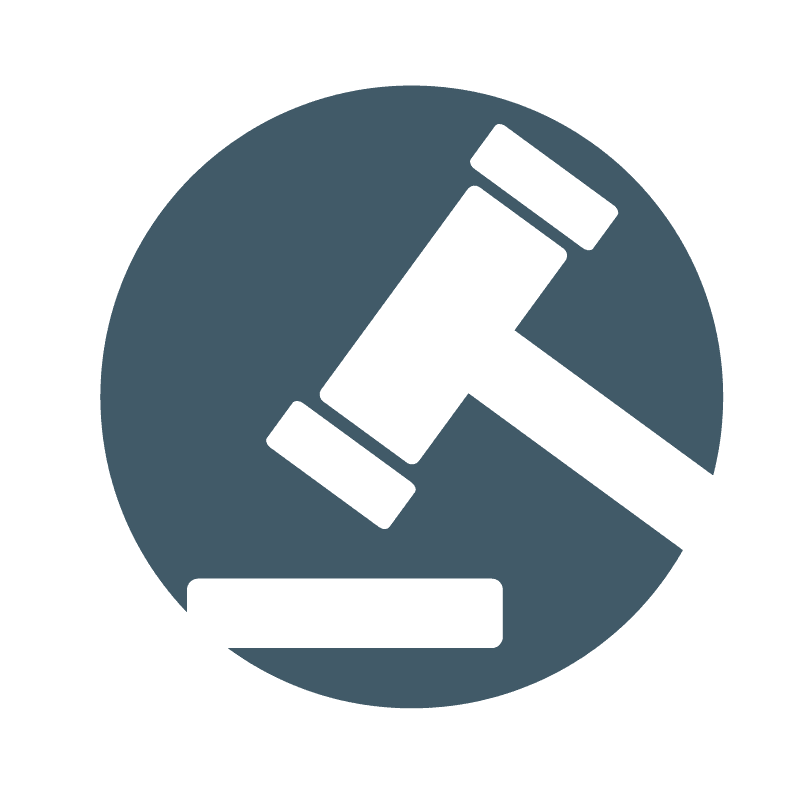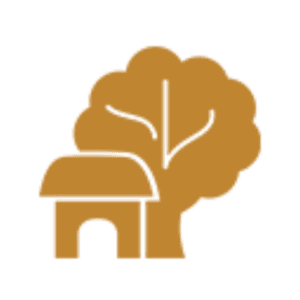Explore the global data below.
RRI’s Forest Tenure data tracks forest area under four tenure categories based on the rightsholder and strength of their rights under national law, employing a bundle of rights approach that links RRI’s qualitative and quantitative data.
Forest Area Data
Evidence from 58 countries covering nearly 92 percent of the world’s forests shows communities’ legal rights to own and manage forests increased from 2002 to 2017, with most of these gains occurring within 33 low- and middle-income countries in Africa, Asia, and Latin America. Yet, significant challenges in implementation remain and communities continue to contest lands controlled by governments and other actors.
Status of Community and Community Women’s Rights
Deeper analysis of the legal frameworks regulating community-based forest tenure in 35 countries shows that despite continued expansion of protections for Indigenous Peoples, Afro-descendant Peoples, local communities, and community women under international law, reforms to domestic legal frameworks have been inconsistent in their impact on community-based forest tenure rights. In particular, states are still failing to meet their legal obligations to protect women’s community-based forest tenure rights legislatively.
Across 104 legal frameworks analyzed from 35 countries that together cover about 80 percent of forests in Africa, Asia, and Latin America, specific recognition of women’s community-based forest tenure rights only improved marginally from 2016 to 2024.
Read the methodology for each dataset: Forest Area Methodology, Depth of Rights Methodology, and Gender Methodology.
The methodology underlying this data is based on the bundle-of-rights approach for community-based tenure regimes (CBTRs).
A CBTR is a distinguishable set of national laws, regulations, and case law governing all situations under which the right to own or manage terrestrial natural resources is held at the community level.
CBTRs may be classified as “government administered;” “designated for Indigenous Peoples, Afro-descendant Peoples, and local communities;” or “owned by Indigenous Peoples, Afro-descendant Peoples, and local communities” based on the combination of rights recognized under a country’s national laws, regulations, or supreme or constitutional court decisions.
Read through RRI’s full methodologies for Forest Area and the Depth of Rights.
Explore country-level data on the distribution of Forest Tenure over time. Click on the country name to learn more about the legal frameworks recognizing community-based tenure, including the specific rights of Indigenous, Afro-descendant, and community women.
As of 2017, Indigenous Peoples and local communities are legally recognized as owning at least 447 million hectares (Mha), or 12.2 percent, of forestland within the 58 countries analyzed.
Country
Government Administered
2002 2017Designated for Indigenous Peoples, Afro-descendant Peoples, and Local Communities
2002 2017Owned by Indigenous Peoples, Afro-descendant Peoples, and Local Communities
2002 2017Privately Owned by Individuals and Firms
2002 2017Highlighting in gray indicates Complete Case Countries.
Dashes (-) denote situations in which the tenure category in question is not legally possible under national law.
n.d. = No Data
Source: RRI. 2018. At a Crossroads: Trends in Recognition of Community-Based Forest Tenure from 2002-2017.
International Obligations & Status of Indigenous Peoples’, Afro-descendant Peoples’, and Local Communities’ Forest Tenure Rights in National Law" and “Resilience and Resistance: Indigenous, Afro-descendant, and Local Community Women’s Statutory Rights to Community Forests.”
These reports build on RRI’s extensive monitoring of the bundle of community-based tenure rights in key forest countries in the Global South for more than a decade. The analyses provide a critical assessment of the status of the forest tenure rights of Indigenous Peoples, Afro-descendant Peoples, local communities, and the women within these communities, examining the extent to which collective forest tenure rights are recognized under national-level legal frameworks as of December 2024.
The analyses assess 104 legal frameworks (or community-based tenure regimes) within 35 countries across Africa, Asia, and Latin America. Together, these countries cover 80 percent of total forest area in Africa, Asia, and Latin America, and 42 percent of global forest area.
The community-based tenure regime (CBTR) underpins all of RRI’s Tenure Tracking methodologies and associated databases. A CBTR is a distinguishable set of national laws, regulations, and case law governing all situations under which the right to own or manage terrestrial natural resources is held at the community level.
The Depth of Rights methodology employs a bundle of rights approach to assess communities’ collective forest rights of access, withdrawal, management, exclusion, due process and compensation, as well as the duration of these rights and communities’ recognized authority to alienate them across distinct legal frameworks recognizing community-based forest tenure rights. RRI also assesses two contextual indicators that provide nuance regarding these rights: 1) Free, Prior and Informed Consent (FPIC), and 2) the right to use resources or areas for cultural and/or religious purposes.
The strength of CBTRs is subsequently categorized as “owned by Indigenous Peoples, Afro-descendant Peoples, and local communities;” “designated for Indigenous Peoples, Afro-descendant Peoples, and local communities;” or “government administered,” based on the combination of rights recognized under a country’s national laws, regulations, or supreme or constitutional court decisions.
- Rights and Resources Initiative. 2025. NEW REPORT NAME. Rights and Resources Initiative, Washington, DC. doi: XXXX
- Rights and Resources Initiative. 2025. Resilience and Resistance: Indigenous, Afro-descendant, and Local Community Women’s Statutory Rights to Community Forests. Rights and Resources Initiative, Washington, DC. doi: 10.53892
Read RRI’s Depth of Rights Methodology and Gender Methodology.
Key Findings From the Depth of Rights Analysis:
The analysis stems from the 2025 report, “NEW DoR TITLE,” which assesses 104 legal frameworks (or CBTRs) within 35 countries across Africa, Asia, and Latin America. As of December 2024:
Since the adoption of the SDGs in 2015, 11 new legal frameworks, or CBTRs, recognizing some form of community-based forest tenure were established across 7 of the 35 countries analyzed. Most of these new CBTRs (9) were recognized in Africa. Five of the 11 new CBTRs recognize the full bundle of rights constituting community forest ownership.
While 46 percent of CBTRs underwent some reform between 2016-2024, these reforms resulted in both rollbacks and improvements to indicator assessments across the CBTRs analyzed. The overall bundle of communities’ recognized rights was expanded in only 3 CBTRs (2 in Africa and 1 in Asia).
Less than half (44) of all CBTRS legally recognize the full bundle of rights constituting community forest ownership, demonstrating that the increasing number of CBTRs does not necessarily indicate stronger recognition of the tenure rights of Indigenous Peoples, Afro-descendant Peoples, and local communities. Recognition of rights in perpetuity and of the right to exclude third parties are the least frequently recognized indicators among those assessed.
Legal regimes aimed at recognizing customary or community-based rights provide the most robust protection of the bundle of rights, followed by use/exploitation-oriented CBTRs and conservation-oriented CBTRs.
Nearly all CBTRs allow at least some form of forest resource use; however, the scope of recognition for these rights varies widely. The law often includes restrictions on commercial or subsistence uses and fails to account for the cultural, spiritual, and religious significance of forest areas for Indigenous Peoples, Afro-descendant Peoples, and local communities.
How to cite the data:
Rights and Resources Initiative. 2025. NEW REPORT NAME. Rights and Resources Initiative, Washington, DC. doi: XXXX
Key Findings From the Women’s Rights to Forests Analysis:
The analysis stems from the 2025 report, “Resilience and Resistance: Indigenous, Afro-descendant, and Local Community Women’s Statutory Rights to Community Forests,” which assesses 104 legal frameworks (or CBTRs) within 35 countries across Africa, Asia, and Latin America. As of December 2024:
Legislative provisions adequately protecting the rights of community women exist for only 2 percent of CBTRs regarding Voting; 5 percent for Leadership, 13 percent for community-level Inheritance; 20 percent for Dispute Resolution; and 29 percent for Membership.
Concerningly, the rights most pivotal for women to shape their and their communities’ relationship with forest resources—Voting and Leadership—continue to receive the least amount of adequate protection under national law, thus limiting community women’s ability to challenge gender-discriminatory norms and meaningfully participate in key decisions impacting community territories.
National legal frameworks that recognize community forest ownership, and those established with the primary goal of securing community rights (as compared to regimes established for conservation or resource extraction), provide the strongest protections for Indigenous, Afro-descendant, and local community women’s tenure rights—showing that the legal advancement of communities and community women can and does go hand in hand.
Legal reforms that generally overlook or actively diminish community women’s forest tenure rights appear to be eroding the positive association between communities’ and community women’s forest tenure rights under national law.
How to cite the data:
Rights and Resources Initiative. 2025. Resilience and Resistance: Indigenous, Afro-descendant, and Local Community Women’s Statutory Rights to Community Forests. Rights and Resources Initiative, Washington, DC. doi: 10.53892
RRI’s Depth of Rights analysis assesses the status and strength of Indigenous Peoples’, Afro-descendant Peoples’, and local communities’ statutory forest tenure rights across 35 countries in Africa, Asia, and Latin America. The legal frameworks assessed, called community-based tenure regimes (CBTRs), are defined as distinguishable sets of national, state-issued laws and regulations governing “all situations under which the right to own or manage terrestrial natural resources is held at the community level.”
- 2016
- 2024
Sources: RRI. 2016. Depth of Rights Database.
Sources: RRI. 2024. Depth of Rights Database.
- 2016
- 2024
Sources: RRI. 2016. Depth of Rights Database.
Sources: RRI. 2016. Depth of Rights Database.
Sources: RRI. 2016. Depth of Rights Database.
Sources: RRI. 2016. Depth of Rights Database.
Sources: RRI. 2016. Depth of Rights Database.
Sources: RRI. 2016. Depth of Rights Database.
Sources: RRI. 2016. Depth of Rights Database.
Sources: RRI. 2016. Depth of Rights Database.
Sources: RRI. 2016. Depth of Rights Database.
Sources: RRI. 2016. Depth of Rights Database.
Sources: RRI. 2024. Depth of Rights Database.
Sources: RRI. 2024. Depth of Rights Database.
Sources: RRI. 2024. Depth of Rights Database.
Sources: RRI. 2024. Depth of Rights Database.
Sources: RRI. 2024. Depth of Rights Database.
Sources: RRI. 2024. Depth of Rights Database.
Sources: RRI. 2024. Depth of Rights Database.
Sources: RRI. 2024. Depth of Rights Database.
Sources: RRI. 2024. Depth of Rights Database.
Sources: RRI. 2024. Depth of Rights Database.
RRI assesses two contextual indicators that provide nuance regarding the rights included in the bundle of rights: 1) Free, Prior and Informed Consent (FPIC), and 2) the right to use resources or areas for cultural and/or religious purposes.
Does national law recognize community-based rights to use any resources (timber, non-timber, water, and/or other) or areas for cultural and/or religious purposes? Cultural/religious use rights or areas may also be described as “traditional,” “customary,” “spiritual,” “sacred,” or in other similar terms.
- Global
- Regional Comparison
Sources: RRI. 2024. Depth of Rights Database.
Does national law guarantee FPIC rights for Indigenous Peoples, Afro-Descendant Peoples, or local communities—or their self-appointed representative institution—that are applicable to community forests?
- Global
- Regional Comparison
Sources: RRI. 2024. Depth of Rights Database.
RRI’s Gender Database builds on the Bundle of Rights to assess the extent to which the same 35 countries’ legal frameworks recognize Indigenous, Afro-descendant, and local community women’s specific rights to community forests, and whether those states are meeting their obligations under national and international laws. These frameworks, called community-based tenure regimes (CBTRs), are defined as distinguishable sets of national, state-issued laws and regulations governing “all situations under which the right to own or manage terrestrial natural resources is held at the community level.”
Learn more about RRI’s Gender Methodology.
- 2016
- 2024
Source: RRI. 2024. Depth of Rights Database.
- 2016 - Overarching Rights
- 2024 - Overarching Rights
Source: RRI. 2024. Depth of Rights Database.
Source: RRI. 2024. Depth of Rights Database.
Source: RRI. 2024. Depth of Rights Database.
Source: RRI. 2024. Depth of Rights Database.
Source: RRI. 2024. Depth of Rights Database.
Source: RRI. 2024. Depth of Rights Database.
- 2016 - CBTR-Specific Rights
- 2024 - CBTR-Specific Rights
Source: RRI. 2024. Depth of Rights Database.
Source: RRI. 2024. Depth of Rights Database.
Source: RRI. 2024. Depth of Rights Database.
Source: RRI. 2024. Depth of Rights Database.
Source: RRI. 2024. Depth of Rights Database.
Source: RRI. 2024. Depth of Rights Database.
Source: RRI. 2024. Depth of Rights Database.
Source: RRI. 2024. Depth of Rights Database.
Source: RRI. 2024. Depth of Rights Database.
Source: RRI. 2024. Depth of Rights Database.


















